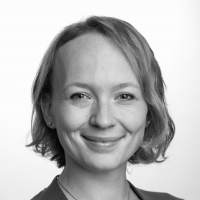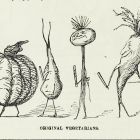Meat Ban: Pleasure and Pain, Asceticism, and Hypocrisy
Meat Ban: Pleasure and Pain, Asceticism, and Hypocrisy
Since vegetarian societies began to spread and organize events in Germany, their missionary attitude and their supposed moral superiority have been ridiculed. Caricatures mocked the rigid rules of the vegetarians and their societies, accusing them of hypocrisy or of reinterpreting the self-imposed prohibitions according to their own needs and weaknesses.










